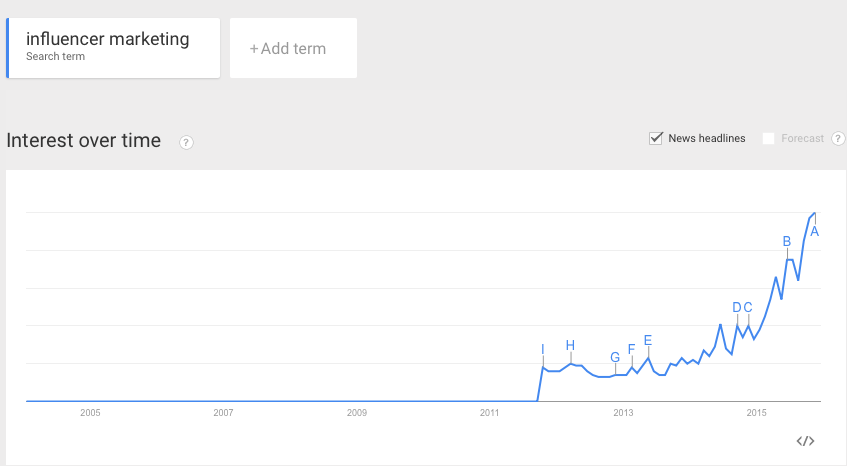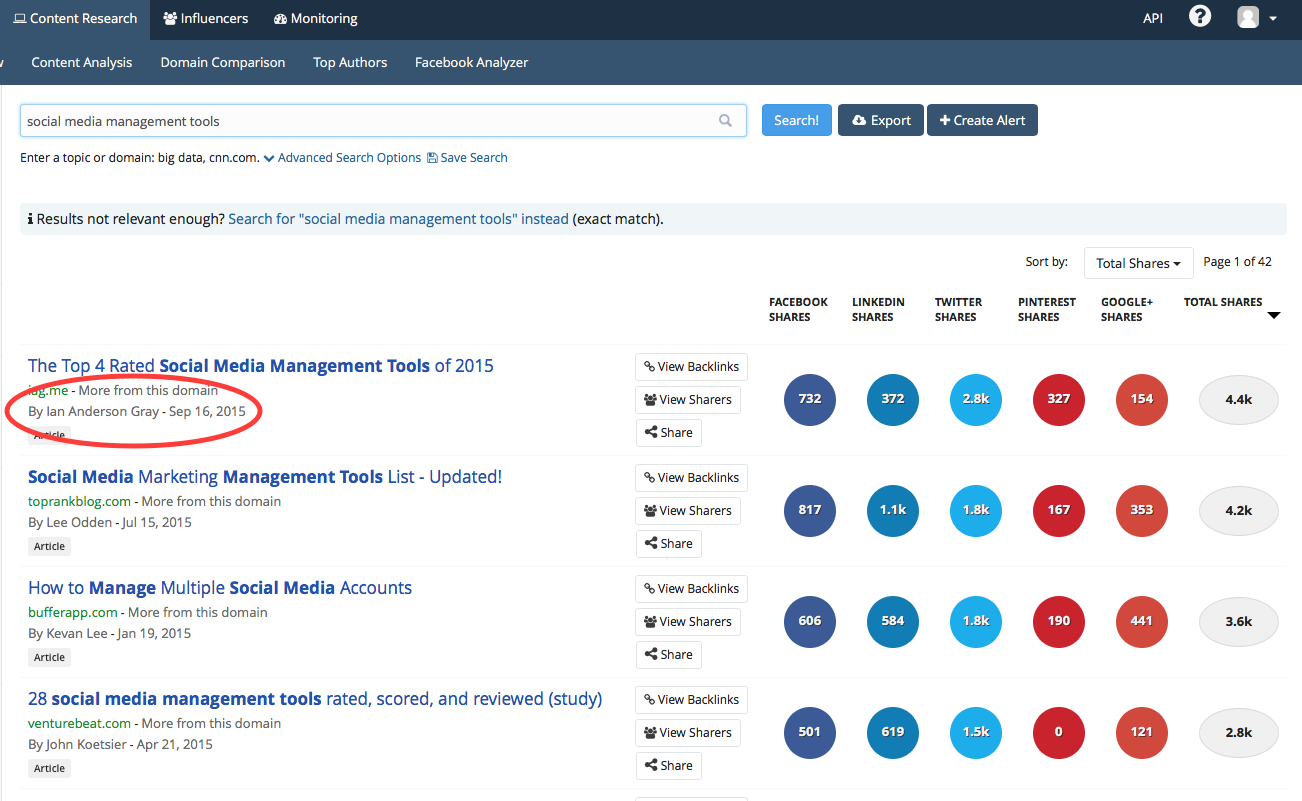
Are you considering working with influencers to promote your brand? Influencer marketing is a hot topic right now, and while it can be effective, it also involves risk. Success lies in building strong, mutually beneficial relationships with influencers you can trust. Take your time to understand the nuances of influencer marketing in your industry and explore the potential opportunities and threats before diving in.
In this post, we will explore what influencer marketing is, what might be causing its current popularity, and how businesses should proceed if they wish to pursue it.
What Exactly is an Industry Influencer?
Industry influencers are people who are known in their field and who have access to a sizable audience that is interested in their opinions. They are typically knowledgeable about the different players, techniques, and/or product options in their space and are willing to share their expertise through individual consultations, speaking engagements, and/or various forms of media (blogs, articles, research reports, videos, etc.).
Some influencers purposely set out to develop a public reputation and actively nurture it by seeking forums where they can share their knowledge. For others, it happens more organically through their work as practitioners, consultants, or even power users.
As the internet has become more interactive and consumers have taken control of their purchasing process, the definition of an influencer has grown. Sometimes they are professionals (company leaders, journalists, analysts, and reputable practitioners), but they can just as easily be enthusiastic, vocal, or even outrageous consumers with a popular blog or YouTube channel.
What is Influencer Marketing?
Influencer marketing is a practice where vendors will deliberately build and nurture relationships with industry influencers in an effort to positively impact what they say about their company and brand. This isn’t as underhanded as it may sound – influencers and vendors both understand the nature of the relationship and have something to gain. The ideal outcome is a mutually beneficial relationship that supports each party’s success and upholds their integrity.
The way influencer marketing is approached varies greatly based on the industry. In general, the more technical industries or those with longer sales cycles (and larger deals) host influencers who have spent their careers building their knowledge and reputation. These professionals take pride in their role as informed, objective advisors. Vendors can educate these influencers, and they can compensate them for their time and advice (effectively building a relationship), but the explicit offer of payment for a positive mention would be considered inappropriate.
In industries with shorter sales cycles or where purchases are more for pleasure or hobby, influencers are more diverse. They might be professionals or celebrities who are popular in a certain space, like sports, travel, or gardening. They could also be everyday consumers who share about their use of products and services and have managed to build up a significant following on social media. In these industries, it can sometimes be acceptable to compensate an influencer simply for applying their status to your brand, but this is a delicate subject that must be approached with care.
Why is Influencer Marketing Currently a Hot Topic?
Working with industry influencers is not a new idea but the practice has been gaining traction among the digital marketing community. This is apparent from the numerous blog posts being produced on the topic and can be further confirmed with a quick query on Google Trends, which shows the following:

(Full disclosure: I first saw this chart in an article titled “6 Hidden Dangers of Influencer Marketing” by Neil Patel, which is well worth a read)
Many of the blog posts on this topic have cited reports such as this Influencer Marketing Study by Tomoson, which shows that marketers are finding influencer marketing to be very effective. But I think this trend has also been impacted by the decline of organic reach on social media, the increased use of ad-blocking software, and the fact that blogging has achieved mainstream adoption, creating a new breed of influencers.
Social media platforms, which were initially considered a free or “low-cost” marketing channel, have grown crowded, and vendors now find themselves competing for the attention of their customers. Vendors can pay to promote their posts, which will expand their reach, but even this is not a guarantee, and the increased use of ad-blocking software compounds the problem. Even when vendors advertise or pay to promote their social media posts, their efforts may be blocked by their target audience.
Blogging, which was historically considered a hobby, has become a professional occupation and has resulted in a new breed of influencers. Bloggers who spent years building loyal communities and eventually allowed advertising to subsidize their efforts now find themselves pursued by organizations who want them to talk about individual brands in their posts.
When you combine these factors with the reality that blogging and social media still suffer the reputation of being “free,” “low-cost,” or a “hobby,” it makes perfect sense that influencer marketing is attracting attention as a financially viable and possibly more effective marketing vehicle.
I think there is a huge danger in the concept that this will be a low-cost endeavor. These “new” influencers (who may or may not be celebrities or professionals in the traditional sense) are just as valuable as their traditional peers, regardless of their credentials. They have worked equally hard (if not harder) to build their reputations, and they must be treated with respect. As competition for their attention increases, their prices will go up.
How Should I Proceed if I Wish to Engage in Influencer Marketing?
1. Get Your House In Order
When you work with influencers, you are inviting them to put your product, service, and/or brand under a microscope. Make sure you have a solid story and can present your offering in its best light. Know how your product or service stacks up to the competition and be ready to address any concerns that may arise. Remember that every interaction you have with them could potentially become public.
Once you are ready to engage, do so slowly to build trust. Approach this effort with the intent of creating a long-term, genuine relationship – one that is based on authentic, mutual admiration and respect. This is not a race. Influencer marketing is a long-term investment.
2. Choose Influencers Carefully
Marketers must be thoughtful in their approach to this aspect of marketing because the choices they make will impact how their brand is perceived by their customers and by other influencers. A wrong move may not inspire a public critique, but it could result in the private sharing of damaging information or the omission of your brand from important lists.
Influencers are people – they want to be heard and respected. They have their own needs, desires, egos, biases, and agendas, and they make mistakes. Although most influencers are completely ethical, there will always be those who go rogue.
Look for influencers who have invested significant effort in their reputation. A good place to start (if you wish to see the social media impact of an influencer) is a tool like BuzzSumo. BuzzSumo will allow you to see which content is receiving the most shares for the term of your choice.
For instance, if I enter the term “social media management tools,” I can see that Ian Anderson Gray has been getting the most reach in this space, followed closely by Lee Odden.

A good influencer will operate from a place of integrity. They will insist on forming their own unbiased opinion of your product and will only be willing to talk about it from a place of truth and transparency. Their continued livelihood rests on the trust others have in them, and they should not be open to risking it for the sake of one brand.
Yes, there will be those who are willing to sell their opinions to the highest bidder, but I would strongly advise against working with them. When companies align their message with an influencer, they are putting their reputation in that person’s hands. If they are easily bought, they could just as easily be debunked, and if they go down, your reputation could go down with them.
3. Consider the Influencer’s Point-of-View
Most influencers have worked hard to build up a reputation, and their primary goal is to protect it. Consider any requests that you make from that perspective. What risks are you asking them to take? What will they do with an expanded knowledge of your product and services? How will engaging with your brand strengthen their reputation?
In some industries, where the influencers are analysts, you cannot pay for an endorsement. If you can, it’s not worth it. In those industries, any payment exchanged will simply be for the analyst’s time and any resultant reports. There will be no guarantees of a positive mention, and sometimes they will give their opinions to your target audience behind closed doors.
In industries where you can pay for an endorsement, an influencer’s choice to work with your brand might mean that they must give you preference over your competitors. If they cannot promote both of you, they will not risk choosing a brand that is subpar.
Make your brand and product irresistible, and be sure that you present the influencer with an offer that is appropriate for your industry and that will support their goals.
For additional insight on the influencer’s perspective, consider reviewing these posts. The first is by Ann Tran, who is a well-known influencer in the social media space. Ann wrote an article titled “How Influencers Should Be Compensated by Brands,” where she discusses the thought process she goes through when choosing to work with a brand. The second post was written by Katie Moseman, who is a food and restaurant blogger. She explores how she balances meeting the needs of her audience with writing sponsored posts.
4. Expect to Compensate Influencers for Services
Paying influencers to mention your brand is a controversial topic. Some feel that compensation of any sort is unacceptable and compromises the impact of influencer mentions. Others feel that compensation is necessary and acceptable as long as both parties are transparent about the nature of the relationship. Although I understand the first point of view, I don’t feel that it is realistic.
Relationships can and should start out organically. This is the time when the offer of a free product could be helpful and welcomed in the spirit of developing the connection and allowing an influencer to explore the product entirely. But, once you ask an influencer to invest significant time examining your product, providing you with feedback, writing an opinion, or doing anything else that leverages their hard-won reputation or expertise, you should expect to compensate them.
Regardless of whether the influencer is a seasoned professional or a self-made internet personality, anyone worth working with will not be free or cheap. Your offer should take into account not just their time, but the experience, knowledge, and effort expended to get themselves to the point where you are seeking their attention.
This isn’t to say that every single interaction or minor mention must be paid for – this can happen naturally in the course of building the relationship, but for larger requests, expect to pay.
There may be cases where the compensation does not have to be monetary. Perhaps you have a product that is of significant value that will truly make the influencer’s life easier, or maybe their engagement with you will provide them with great exposure for their personal brand. In that instance, it might make sense to include that as part of the compensation package, but only if it is truly of value to them.
The Bottom Line
Building and leveraging relationships with industry influencers can be an effective part of a marketing strategy, but it is not one that should be hurried or undertaken lightly. Take the time to ensure that your offering is solid enough to warrant an influencer’s attention, then choose influencers who have solid, lasting reputations with whom you would be proud to align your brand. Approach influencers from the vantage of building lasting and mutually beneficial relationships and be prepared to compensate them for their time, expertise, and reputation.
Influencer marketing can be a highly rewarding endeavor, but there is a cost to creating and leveraging these valuable relationships. View this effort as a long-term investment and give the influencers the respect they deserve. Your organization’s reputation and the reputation of the influencer are both at stake.




